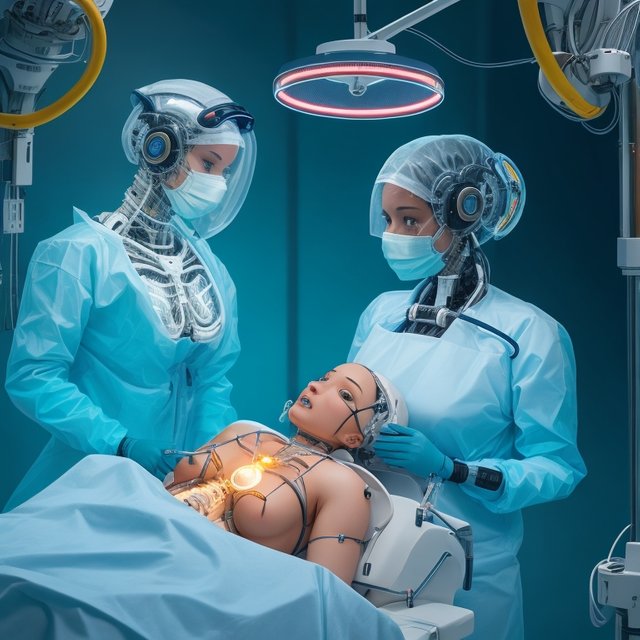Surgery is a complex and challenging field, with many mysteries that remain unsolved. Despite advances in medical science, there are still many conditions that surgeons do not fully understand, and there is always the risk of complications and unexpected outcomes.
Epistemological modesty is the recognition that we do not know everything, and that there is always more to learn. This is an important quality for surgeons, who need to be aware of the limitations of their knowledge and be willing to adapt their approach accordingly.
Artificial intelligence (AI) has the potential to help surgeons overcome some of the challenges they face. AI-powered systems can analyze large amounts of data to identify patterns that would be difficult or impossible for humans to see. This can help surgeons to better understand the underlying causes of diseases and to develop more personalized treatment plans.
AI can also help surgeons to perform surgery more safely and precisely. AI-powered surgical robots can provide surgeons with a magnified view of the surgical site and allow them to perform complex procedures with minimal invasiveness.
However, it is important to be aware of the limitations of AI in surgery. AI systems are only as good as the data they are trained on. If the data is biased or incomplete, the AI system will produce biased or incomplete results. It is also important to remember that AI systems are not capable of independent thought or judgment. They are simply tools that can be used to augment the skills and knowledge of surgeons.
Overall, AI has the potential to be a valuable tool for surgeons. However, it is important to use AI responsibly and ethically. Surgeons should always maintain control over the decision-making process and should not rely solely on AI to make decisions for them.
Here are some specific examples of how AI is being used in surgery today:
AI-powered surgical robots: AI-powered surgical robots are being used to perform a variety of complex procedures, such as cardiac surgery, neurosurgery, and urological surgery. These robots provide surgeons with a magnified view of the surgical site and allow them to perform delicate procedures with minimal invasiveness.
AI-powered diagnostic tools: AI-powered diagnostic tools are being used to help surgeons diagnose diseases and identify tumors. These tools can analyze large amounts of medical images, such as MRI scans and CT scans, to identify patterns that would be difficult or impossible for humans to see.
AI-powered personalized treatment plans: AI-powered systems can be used to develop personalized treatment plans for patients based on their individual medical history and other factors. This can help surgeons to select the most effective treatment for each patient and to reduce the risk of complications.
AI is still in its early stages of development, but it has the potential to revolutionize the field of surgery. By using AI to better understand the underlying causes of diseases and to develop more personalized treatment plans, surgeons can improve the outcomes of their patients.
